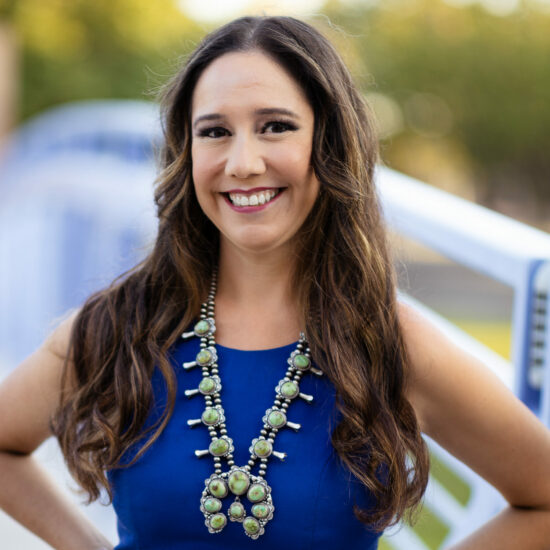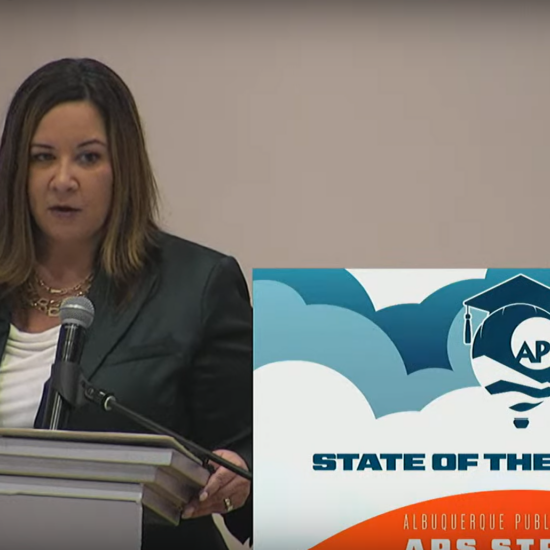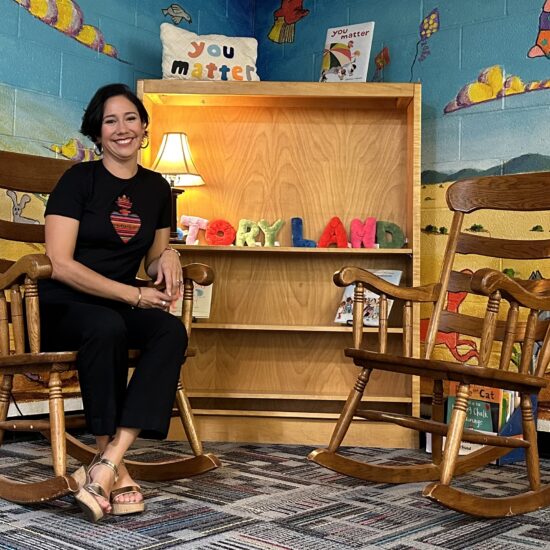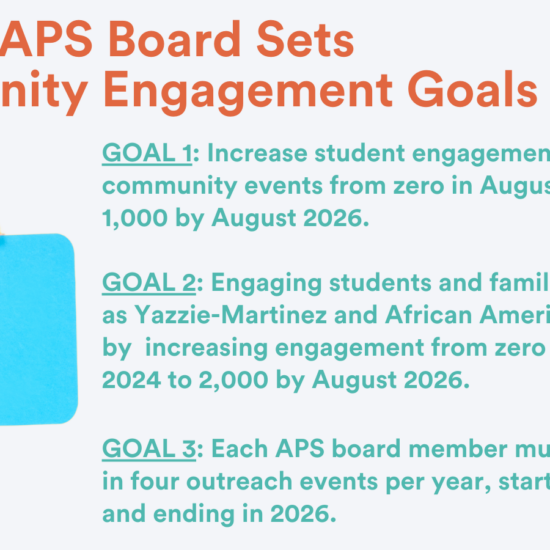
Experts studying Albuquerque Public Schools as part of the district’s strategic planning process observed a pervasive lack of rigor across the 189 classrooms they observed.
That was one of the more sobering findings released to the Board of Education this week in Attuned Education Partners’ “Organization Diagnostic” of APS.
After observing lessons in classrooms across APS, researchers found that students were “provided with opportunities to respond authentically to grade-level tasks in only 38% of observations.”
While the classroom observations were more a “snapshot” than a comprehensive review, board members and senior staff said the findings were troubling.
The report also found that 40 percent of students were “chronically absent” in 2022, and that elementary schools had a 49 percent absenteeism rate.
Board member Danielle Gonzales described the findings as “a gut-punch,” which shows that “we are failing our kids, and that’s a tragedy.”
“My heart breaks for the kids in this district,” Gonzales said.
And board member Peggy Muller-Aragón said it’s hard to expect students to perform at grade level if they aren’t given work that allows them to demonstrate their proficiency. “We need to give our kids a chance (to show) what they can do. And many of them are not even given that opportunity,” she said.
But board member Barbara Petersen said the diagnostic report failed to address “root causes” of students’ struggles which, she said, often originate and are exacerbated by factors outside of school control.
“My caution is there is no analysis of root causes,” Petersen said. “So all of this ends up being done with very much a deficit perspective, (suggesting) that there’s something wrong with our teachers, there’s something wrong with our students.”
It would be helpful, Petersen said, to examine root causes. High absenteeism, for example, can in part be explained by the fact that low-income children get sick more often and have less access to health care, or must stay home to care for a sick sibling or grandparent.
As part of its work, Attuned Education Partners observed classrooms across the district, interviewed students, educators, families, union leaders, and others, and analyzed district performance data.
One finding from interviews was that low expectations suggested by below grade-level work was frustrating to students, who said they felt ready to do more rigorous work than teachers were giving them.
“When we asked them about ways to improve their classroom experience, more often than not, they raised that they would like to kind of have a more rigorous experience in terms of how they are pushed,” said Dina Hasiotis, Attuned’s chief strategy officer.
Earlier this year, the APS board developed four academic goals for the district to achieve over the next five years. Superintendent Scott Elder and his staff now must take those goals, and the results of the diagnostic assessment, and craft a five-year strategic plan for the board to approve and monitor.
Other “key gaps” identified by the report included:
- Inequities in student outcomes across and within district zones as well as demographic groups. Most glaring was the fact that white students in grades 3-8 scored three times higher than students of color on state math assessments, and twice as high on English Language Arts tests.
- A wide array of “stakeholders” expressed frustration at district leadership’s lack of vision on where the district is headed. They also complained about “a sense of limited accountability, from the top down, extending to students.”
- Inequities in student experience of curriculum and instruction, “and a need for more consistency and alignment.”
- Poor communication from the central office to schools.
On a more positive note, Attuned found that APS prides itself on its cultural diversity, and seems committed to “supporting the unique cultures of its community.” People interviewed also said they appreciate the wide array of extracurricular activities the district provides, and the variety of resources APS provides, particularly to students in need.
But those positive glimmers were overshadowed by the consultants’ other findings, a point that wasn’t lost on board members.
“I really hope we use this as the wake-up call that it is,” Gonzalez said.







